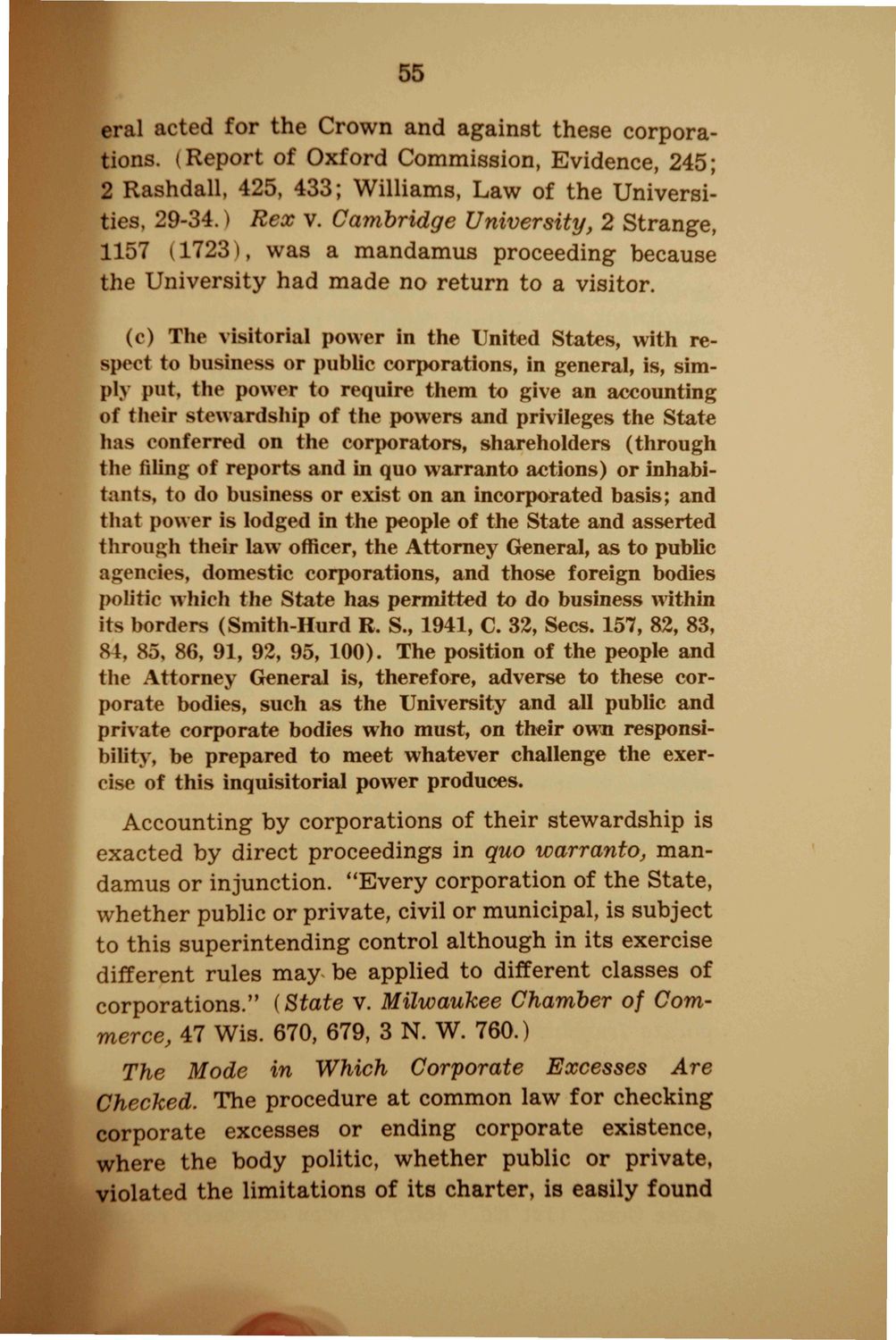| |
| |
Caption: Booklet - UI Charter of Freedom (1942)
This is a reduced-resolution page image for fast online browsing.

EXTRACTED TEXT FROM PAGE:
55 eral acted for the Crown and against these corporations, i Report of Oxford Commission, Evidence, 245; 2 Rashdall, 425, 433; Williams, Law of the Universities, 29-34. i Rex v. Cambridge University, 2 Strange, 1157 (17231, was a mandamus proceeding because the University had made no return to a visitor. (c) The visitorial power in the United States, with respect to business or public corporations, in general, is, simply put, the power to require them to give an accounting of their stewardship of the powers and privileges the State has conferred on the corporators, shareholders (through the filing of reports and in quo warranto actions) or inhabitants, to do business or exist on an incorporated basis; and that power is lodged in the people of the State and asserted through their law officer, the Attorney General, as to public agencies, domestic corporations, and those foreign bodies politic which the State has permitted to do business within its borders (Smith-Hurd R. S., 1941, C. 32, Sees. 157, 82, 83, 84, 85. 86, 91, 92, 95, 100). The position of the people and the Attorney General is, therefore, adverse to these corporate bodies, such as the University and all public and private corporate bodies who must, on their own responsibility, be prepared to meet whatever challenge the exercise of this inquisitorial power produces. Accounting by corporations of their stewardship is exacted by direct proceedings in quo warranto, mandamus or injunction. "Every corporation of the State, whether public or private, civil or municipal, is subject to this superintending control although in its exercise different rules may be applied to different classes of corporations." (State v. Milwaukee Chamber of Commerce, 47 Wis. 670, 679, 3 N. W. 760.) The Mode in Which Corporate Excesses Are Checked. The procedure at common law for checking corporate excesses or ending corporate existence, where the body politic, whether public or private, violated the limitations of its charter, is easily found
| |